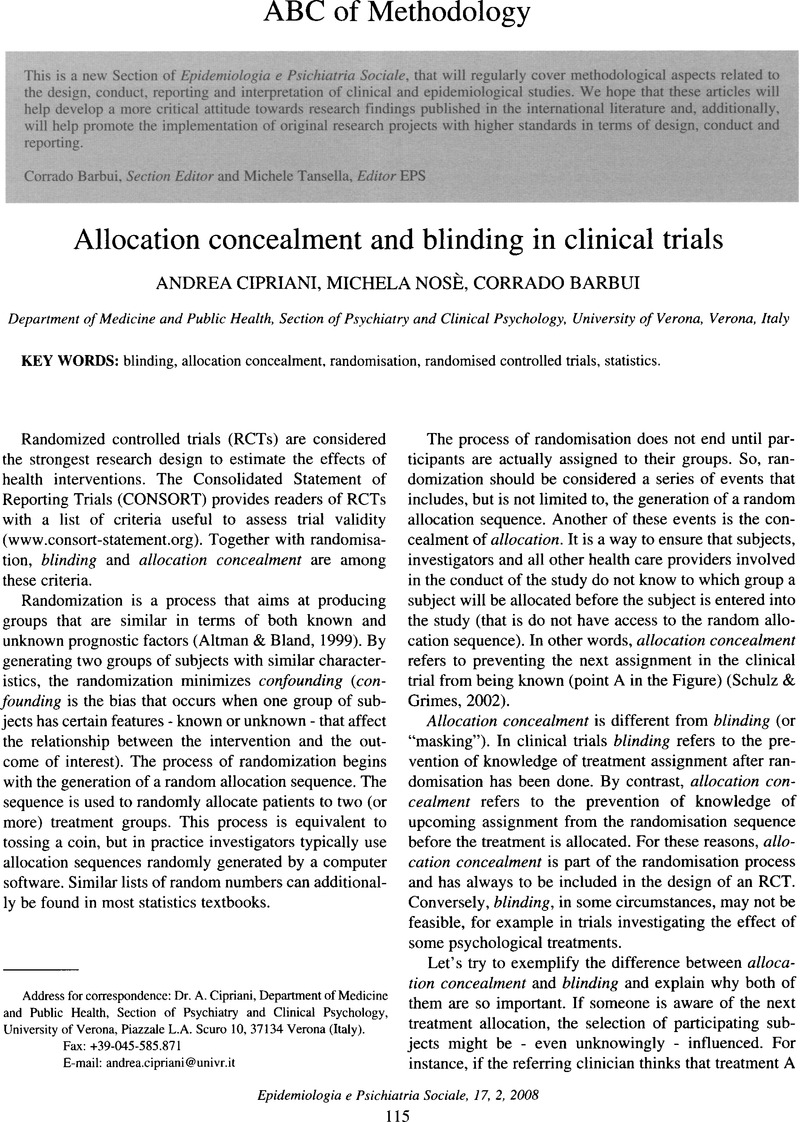Crossref Citations
This article has been cited by the following publications. This list is generated based on data provided by Crossref.
Cipriani, Andrea
and
Geddes, John R.
2009.
What is a randomised controlled trial?.
Epidemiologia e Psichiatria Sociale,
Vol. 18,
Issue. 3,
p.
191.
Barbui, C.
and
Cipriani, A.
2011.
Cluster randomised trials.
Epidemiology and Psychiatric Sciences,
Vol. 20,
Issue. 4,
p.
307.
Paludan-Müller, Asger
Teindl Laursen, David Ruben
and
Hróbjartsson, Asbjørn
2016.
Mechanisms and direction of allocation bias in randomised clinical trials.
BMC Medical Research Methodology,
Vol. 16,
Issue. 1,



